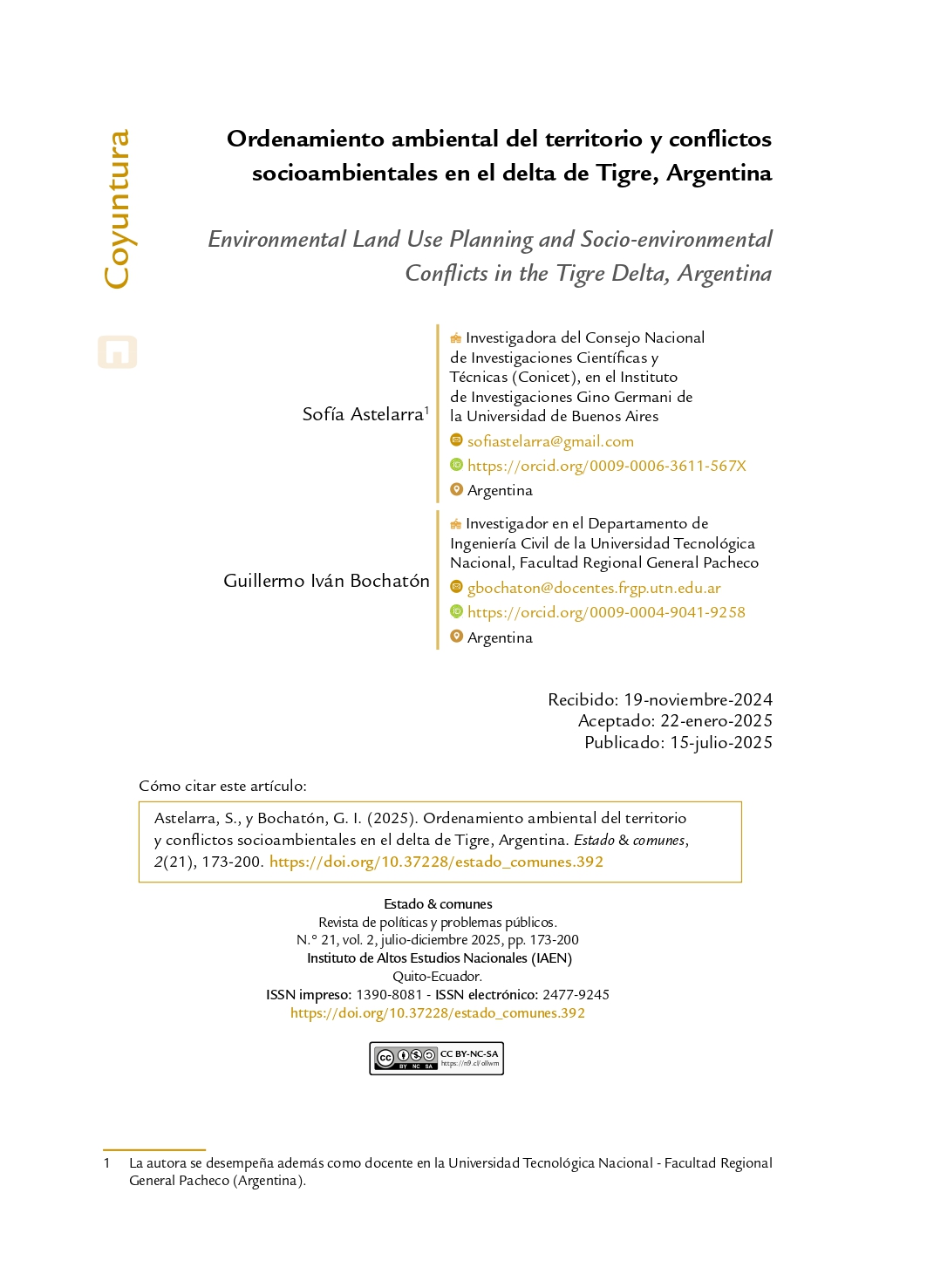Environmental Land Use Planning and Socio-environmental Conflicts in the Tigre Delta, Argentina
Main Article Content
Abstract
This article examines the socio-environmental conflicts that emerged during the development and implementation of Argentina’s first environmental land-use planning (ELUP) policy in wetlands, specifically the Comprehensive Management Plan for the Delta in the municipality of Tigre, Buenos Aires Province. Drawing on the theoretical frameworks of political ecology and territorial planning and based on interviews with key stakeholders and field observations, the article argues that the elaboration of plan was the result from productivities, that is, from the conflicts between the community and civil society organizations on one side, and real estate developers promoting luxury gated communities on the other, amid the absence of environmental regulation. The plan’s implementation generated new conflicts and processes of re-signification of the delta, the islands, and the river, driven by increased citizen participation in decision-making processes.
Downloads
Article Details
How to Cite
Issue
License
Copyright (c) 2025 Sofía Astelarra, Guillermo Iván Bochatón
Author Biographies
Sofía Astelarra (Consejo Nacional de Investigaciones Científicas y Técnicas)
Researcher at the Conicet, at the Instituto de Investigaciones Gino Germani of the Universidad de Buenos Aires
Guillermo Iván Bochatón (National Technological University)
Researcher at the Civil Engineering Department - General Pacheco Regional Faculty
Funding data
-
Universidad Tecnológica Nacional
Grant numbers PID: MSPPAGP0009828 “Estudio de caso de la implementación del Ordenamiento Ambiental Territorial en el Delta del Paraná. Aportes para la formación en ingeniería civil para el Desarrollo sustentable” -
Instituto de Investigaciones Gino Germani
Grant numbers PRI: R24-54 “Conflictos socioambientales, apropiaciones y significaciones en torno a los humedales de la Primera sección de islas del Delta del río Paraná, Partido de Tigre (1990-actual)”.











